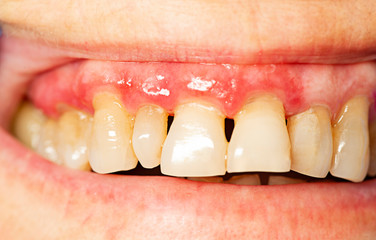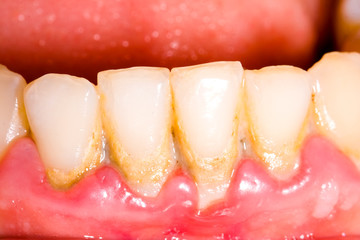Causes


Periodontitis is caused by the build-up of bacteria (dental plaque)
Our mouth can contain up to 1000 different types of bacteria, most of which are completely harmless. However, when tooth cleaning is not thorough enough, the bacterial deposits build up next to our gums, forming a plaque, and the environment changes to allow more harmful bacteria to thrive.
If this soft plaque is not removed effectively, over time it mineralises and becomes a hard deposit on the tooth called calculus or tartar.
This calculus encourages the growth of the bacterial plaque around the gum line. Our gums react to this build-up of plaque and the result is inflammation of the area.
As the inflammation progresses deeper under the gums, the attachment of the gum to the root is disrupted and a gap or periodontal pocket is formed between them.
This pocket is an ideal place for harmful bacteria to live and multiply. This is the driving force behind periodontal inflammation.
The severity and rate of progression of periodontitis varies from person to person. It is influenced by the number and type of bacteria present, how our own immune system reacts to those bacteria, and the presence or absence of risk factors.